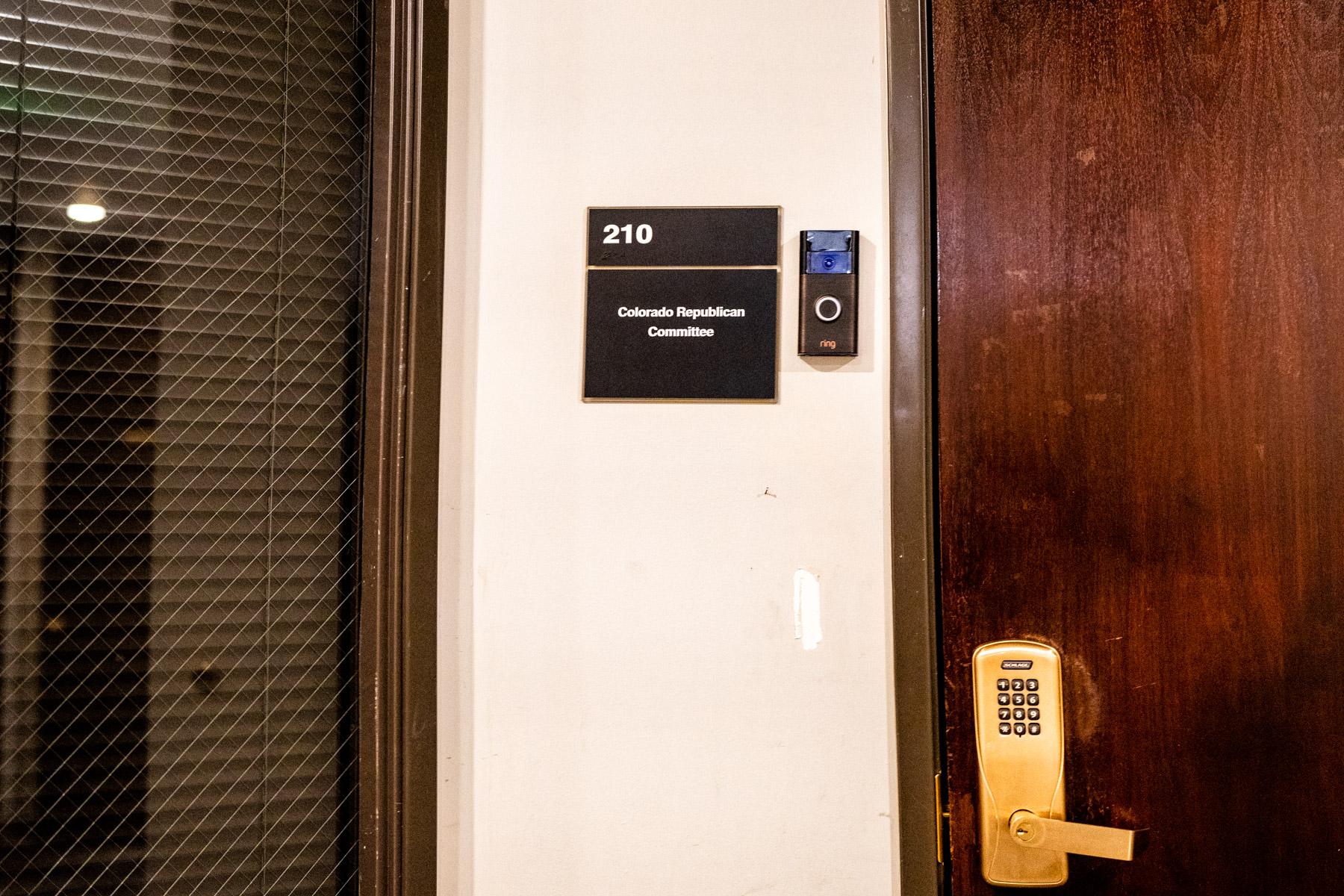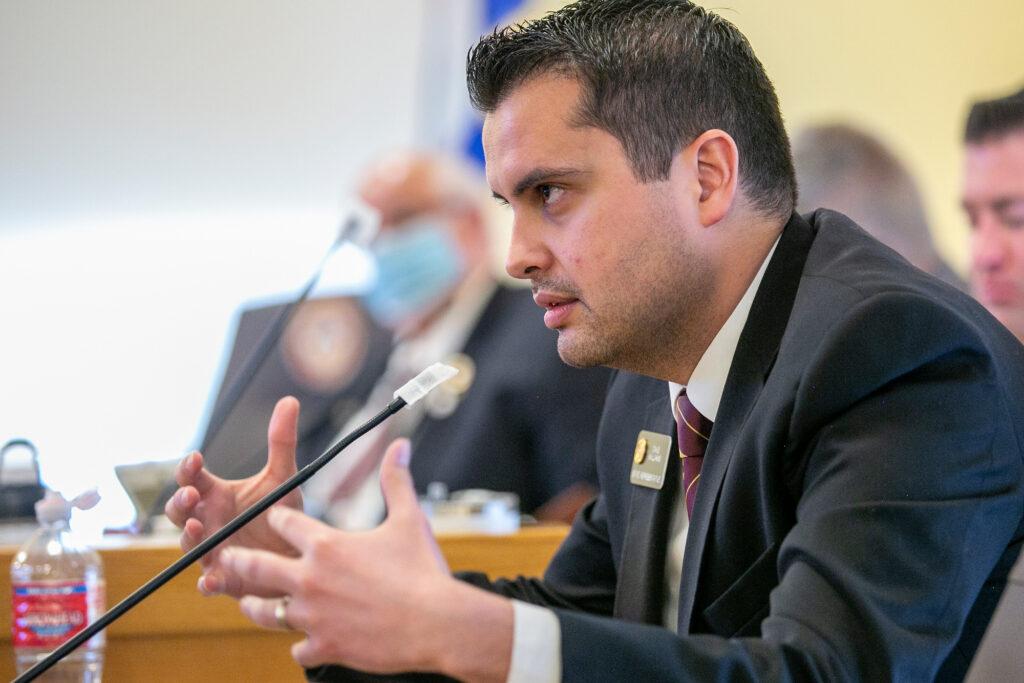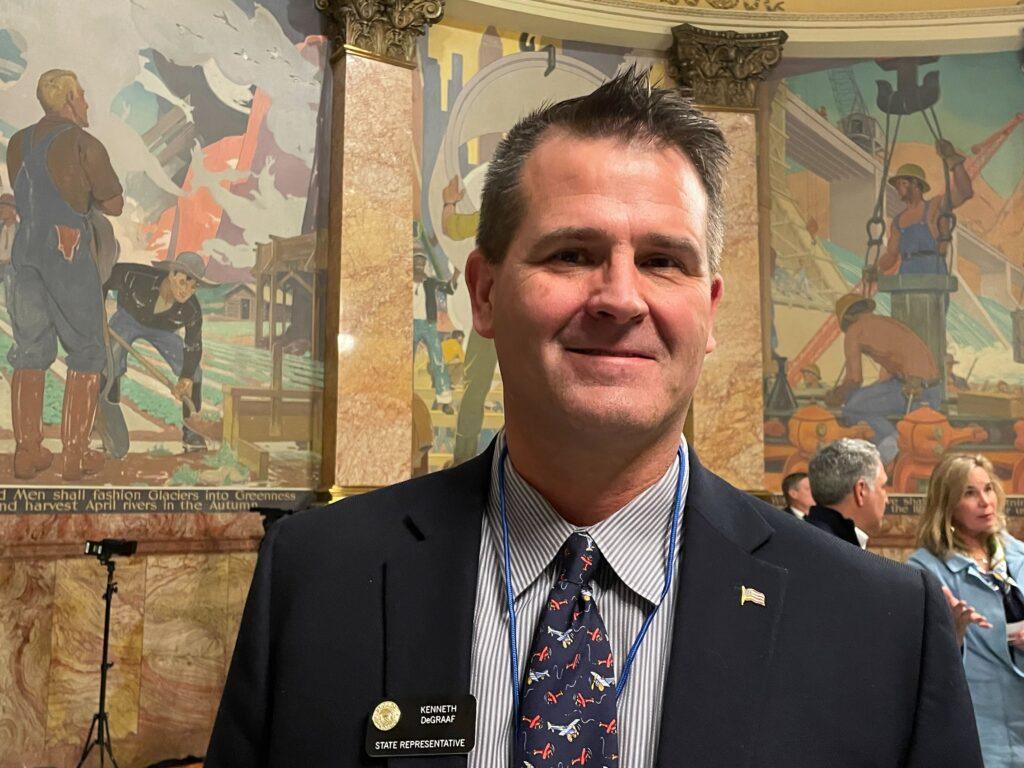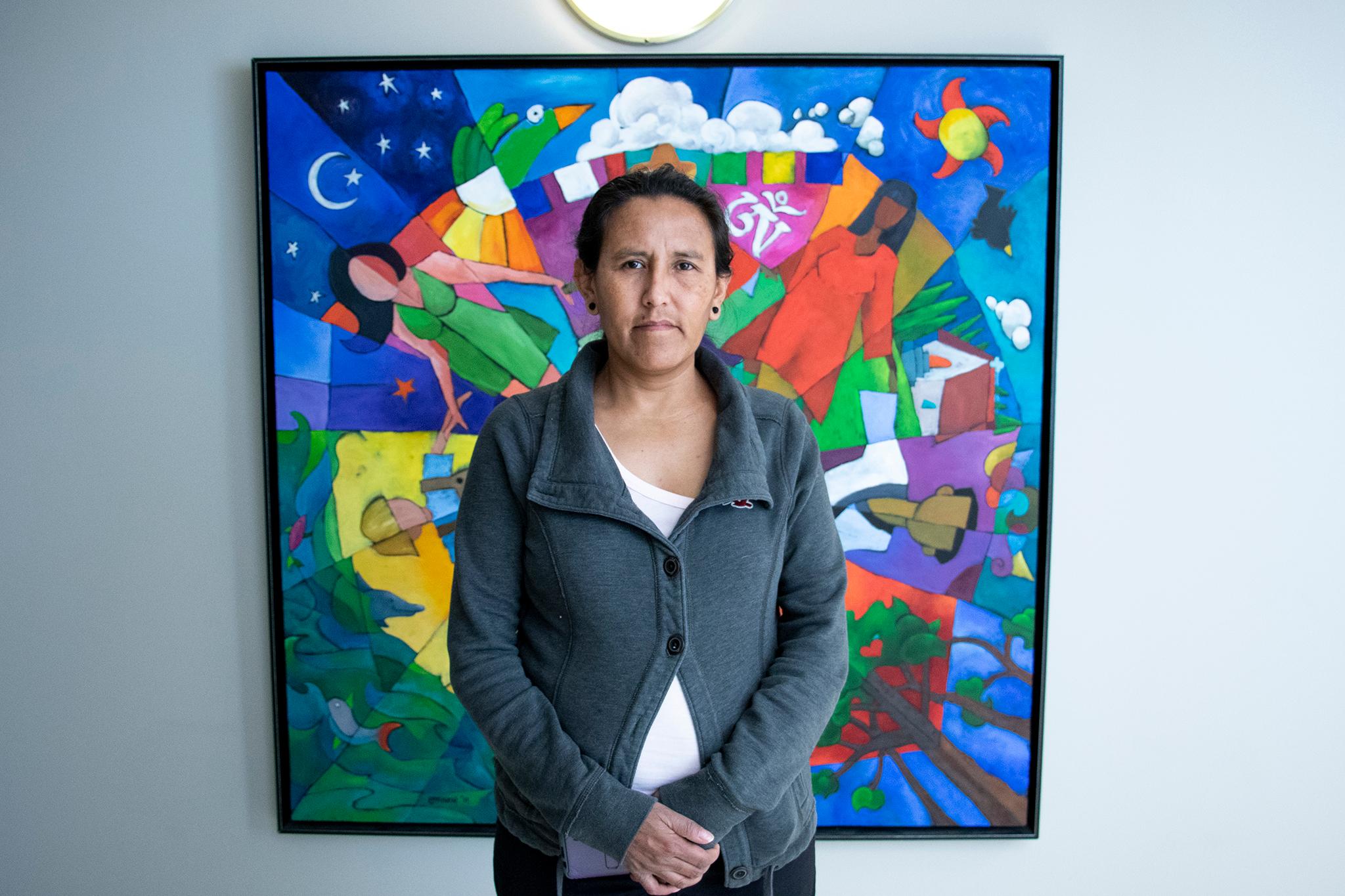
Colorado Republicans are gearing up for some big decisions about their future. Party leaders and members of the state’s central committee will meet Saturday to begin deliberations on efforts to ban unaffiliated voters from participating in the Republican primary.
“The open primary has been devastating to the Colorado GOP,” said Republican party chair Dave Williams in an email to Republicans this week. “It has opened the floodgates to liberal progressives who are fundamentally transforming Colorado into a high-tax, broken-economy, big-government, woke-world.”
There is not universal agreement on that among Republicans. As a result, a parliamentary maneuver Williams wants to adopt at Saturday’s meeting, in which absences during a future meeting would be counted as “yes” votes for Williams’ position, is drawing complaints and scrutiny.
When he was first elected in March by the conservative flank of the party, Williams said closing the primary would be a top priority and he’s now engaged in a multi-pronged effort to try to change how Republicans nominate candidates.
Earlier this week, the Colorado Republican party sued the state in federal court alleging that Proposition 108, which voters approved in 2016, is unconstitutional. The initiative required major political parties to allow unaffiliated voters to participate in primary elections. It also included an opt-out clause for parties, if three-fourths of a party’s central committee agrees.
This Saturday, the GOP will be focusing on the opt-out clause. Williams, and others aligned with the right wing of the party, are proposing that if Republicans can’t attend a future opt-out vote they will be counted automatically as a “yes.”
The proposed rule change on voting has already drawn strong pushback from some counties and other party members.
“To strip any citizen the right to vote or not vote under both the Colorado and United States Constitution is simply wrong no matter how you look at it,” said acting Weld County Republican Party Chairman Hunter Rivera. “Automatically making a non-vote a yes vote flies in the face of the principles this country was built on.”
It has further highlighted the deep divisions among Republicans after years of steep election losses.
In the last decade, Colorado has gone from a highly competitive purple state to deep blue, and there’s been a lot of finger-pointing as to why.
“The party needs to be rejuvenated, it needs to get back to the basics,” said Republican Lori Saine, a Weld county commissioner and former lawmaker. She’s close with many conservative activists and says they feel like the party establishment has abandoned them.
“If you don't have the base, you're not going to win,” she said. “We're having a hard time, there's a disconnect between the party and the base. You know the base adheres to those principles of liberty.”

Chair Dave Williams declined an interview request for this story but during his acceptance speech in March he promised to go up against Republicans he thinks aren’t conservative enough.
“There are too many politicians who say one thing and then do another. And it's not just the Democrats. It's people like Liz Cheney, Mitt Romney, and Mitch McConnell. They need to start listening to us,” Williams said.
In emails to Republicans this summer, Williams blasted Congressman Doug Lamborn for voting for the debt ceiling bill, a prominent state lawmaker, Barbara Kirkmeyer, for backing the state budget — and admonished other local officials for signing a letter in support of a trans lawmaker in Montana.
“I think that is the first time in Colorado political history, a state Republican party has put out a fundraising letter saying, we're gonna go after Republicans with the money you send us,” said former Colorado GOP chair Dick Wadhams.
Even though Wadhams voted for former President Donald Trump twice, he said in this political environment he’s been told he’s not a true Republican.
“It comes down to fealty to Trump,” he said. “If you agree with Trump that the election was stolen, and now if you agree with Trump that if he's elected again, that he would pardon the people who attacked the capitol. If that's the litmus test, then you're damn right. I am a RINO because I will never subscribe to that.”

Wadhams said it’s not the job of a state party chair or others to police conservative values. He believes Williams going after other Republicans and candidates violates the party’s bylaws. Former state house minority leader Mark Waller agrees.
“I mean, it's just terrible. That's the kind of stuff that I don't endorse. I don’t endorse it. Seems like the rhetoric of hate that the Republican Party has engaged in.”
Waller says the divisions have been building for years, but he thinks Williams’ combative style is making it worse and will ultimately backfire.
“He's not like a single-person wrecking crew, but it is a faction of the party that has, you know, taken charge and together they have run it into the ground. I'm worried for the Republican party in Colorado now."
All of the infighting is also taking a toll on the party’s bottom line. Many donors are sitting on the sidelines, but it may be too early to tell if it’s due to a more combative style of Republican politics, or election losses resulting in no GOP statewide officeholders, and historic minorities in the state legislature.
For the first time in years, the Colorado GOP isn’t paying any staff. On a recent workday, the office was locked, blinds drawn and lights out. According to recent campaign finance filings, the party is still paying nearly $4,000 in rent each month.
'Through exhibiting our division and our disdain for each other, there's no value in me donating to the party'
Longtime Republican Pete Woods from Steamboat Springs, who was recently the Routt County GOP chair, said for the time he won’t financially support the state party. He wants the vitriol to end.
“As long as people are calling each other names and handing a gift to the Democrats, through exhibiting our division and our disdain for each other, there's no value in me donating to the party.”
For Debra Irvine of Breckenridge, a former Republican state house candidate, she wants the party to focus on issues, like tax cuts, and promoting private enterprise. She said too many Republicans and elected officials turn off voters.

“Because their delivery is so flawed and aggressive, and dismissive, dismissive of maybe whatever you believe in, but you won't even have the opportunity to find out because you're turned off by that,” Irvine said. “So I've seen a big change and it's sad.”
Colorado’s divisions aren’t unique. In Minnesota, the state GOP has just $53 cash on hand, after years of losing races to Democrats. Election deniers helm Michigan’s GOP, and the party is nearly broke and being run out of a condo.
And there are states like Georgia, where sitting Republican Gov. Brian Kemp faced a primary challenger after refusing to act on former Trump’s stolen election lies. Kemp ultimately won, but by using his own campaign infrastructure, not that of the state party.
However, others say it’s okay for a state party to criticize members who veer off track. State Rep. Ken DeGraaf of Colorado Springs said on the surface it makes sense never to attack another Republican.
“But when somebody says they're a Republican and they are running on the Republican ticket, and then they act or operate counter to the values of our republic, and then nothing happens?” DeGraaf said.

He said it leads some constituents to write off the party and say it doesn’t stand for anything.
DeGraaf believes that for too long, too many in his party have caved to the Left and failed to stand up for the Constitution.
“The opposite way, the status quo has been moving the party towards irrelevance for years,” he said. “So I'm not really sure why we would want to stick with that mode."
DeGraaf also supports closing the primary.
Concerns about closing the primaries
Detractors in the party though fear it will lead to the party nominating candidates who can’t win in a general election where they need support from unaffiliated voters — now the largest share of registered voters in the state. Both major parties have been leaking voters.
Democrats are the second-highest party affiliation, followed by Republicans in third. And even if Republicans do opt out of the primary, Democrats have no plan to do so which could further marginalize Republicans by the time of the general election.
“If the state Republican party wants to make themselves completely irrelevant, that’s probably what they should be doing,” said Republican former state Rep. Don Coram of Montrose of opting out of the primary.
He lost to U.S. Congresswoman Lauren Boebert in the GOP primary last year.
“If they close the primary and don’t let unaffiliateds participate I think they’re far less likely to take kindly to a candidate that is selected by the extremist wing of the party,” he added.









